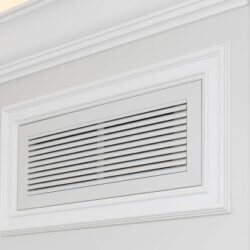
When installing an HVAC system in your residential or commercial establishment, there are many factors that you have to consider. Size is one of the first things that should come to your mind when you are thinking of HVAC installation or replacement. Not all heating and cooling systems are the same. Depending on the heating capacity you require, you have to decide on what size furnace would be right for your home.
But apart from heating capacity, there are a host of other factors that affect the furnace size too. It may seem overwhelming for you unless you have replaced your furnace before. If this is the first time you are installing or replacing your heating system’s furnace, consult a reliable HVAC company before you make a purchase. In St. Louis and the surrounding areas, call the heating and air conditioning experts at Galmiche & Sons at 314-993-1110 with all your HVAC-related queries today.
Factors That Affect What Size Furnace You Buy for Your Establishment
Before you know what factors must be considered when selecting a furnace size for your home or commercial building, you first need to understand what furnace size means for the heating system. When we talk about furnace size, we primarily mean the furnace’s capacity. The capacity of a furnace is measured in terms of British thermal units or BTUs. One BTU is defined as the amount of energy needed to raise the temperature of 1 pound of water by 10° F. Furnaces are rated as 100,000 BTUs or 200,000 BTUs, for example, which are an indicator of the heating capacity of the furnace.
So, the higher the BTU rating of a furnace, the greater the furnace size is. A higher BTU rating, or a bigger furnace size, means the furnace will provide more heat to your home. But this does not mean you always need to go for the highest size furnace for better heating. There are several other things to look into before choosing a furnace capacity.
How to Decide Whether You Need a Bigger or Smaller Size Furnace?
Here are the key points to consider when choosing the best furnace size for your home:
- Floor Area: While focusing on the BTU rating of the furnace is important when you are making a purchase, you should not forget how much available floor area and space you have available. If you end up buying a furnace that is too large, you may not be able to fit it in your basement or may damage the ductwork when moving the furnace in. Similarly, a furnace that is too small will usually have a lower heating capacity, which means it will not heat your entire house uniformly. So choose an optimum size based on the available square footage in your home.
- Heat Retention Capacity of Your Home: It is not necessary that two homes of the same size will always need the same size furnace. How much heating capacity you require in your furnace will also depend on how much heat your home can retain. A well-insulated home can retain more heat, so a smaller size furnace may work fine. But if your home has older windows or gaps between doors and door frames, the heat may escape easily. In such a case, you will need a bigger size furnace that can deliver more heat to keep your home warm.
- Age of Your Home and HVAC System: Older homes with old HVAC systems may need relatively smaller replacement furnaces. This is because your HVAC unit may not be able to handle the higher heating capacity of a bigger furnace. You may risk damaging your weakened ductwork or the HVAC system itself if you replace your existing furnace with a bigger one.
- Climatic Conditions: The climatic conditions you live in will also impact your choice. If you live in a region with extremely cold temperatures, you will need a bigger furnace with higher BTU ratings. For your St. Louis home, a moderately sized furnace should be good enough as winters here are cold, but we typically do not have long periods of extremely cold weather.
Ask an HVAC Expert in St. Louis

If you are having a tough time deciding what size furnace to buy as a replacement for your existing one, ask an experienced HVAC repair and maintenance company. In St. Louis, Galmiche & Sons have been helping area residents with all their HVAC needs since 1950. Get in touch with our heating and air conditioning experts to learn more and find the ideal HVAC solutions for your home.









